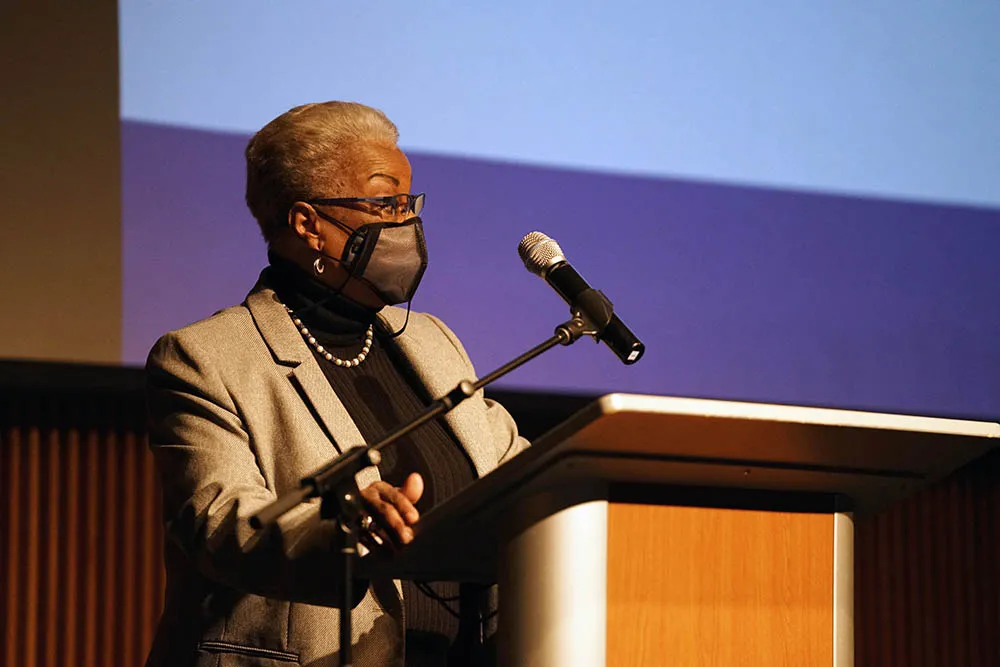Interim president La Jerne Terry Cornish was joined by members of the college’s senior leadership team on Tuesday, Oct. 5, in providing a State of the College update for the campus community. Cornish began her presentation by reminding attendees of the six strategic institutional priorities for this academic year, which were shared at the Aug. 31 All-College Welcome Gathering. These include the development of a community of care; furthering work to build a sustainable financial model; COVID and public health management; diversity, equity and inclusion; enrollment, retention and engagement; and leveraging innovations in teaching, learning and working.
Cornish followed with her five goals as interim president for the academic year.
“You will notice overlap in our six institutional priorities and my personal goals,” said Cornish. “This overlap speaks to the focused nature of the work we are undertaking this year, and to the alignment of the college’s leadership.”
Cornish’s goals include prioritizing financial stability; continuing to advance the strategic plan, Ithaca Forever; communications, alumni engagement and philanthropy; supporting and retaining talent across the institution; and exploring and leveraging partnerships with members of the board of trustees.
